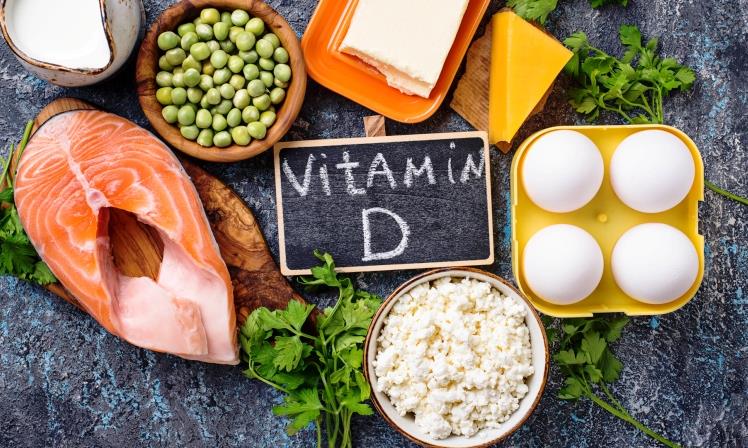
Vitamin D deficiency: Are you at risk? 5 foods to add to your diet to improve immunity
New Delhi, 19-Oct-2020
Researchers have been studying the role of vitamin D in the prevention and treatment of COVID-19, the disease caused by the novel coronavirus (SARS-CoV-2), since the outbreak emerged in China last December. While there isn�t enough data to recommend the use of vitamin D to prevent or treat COVID-19, some studies have suggested that the sunshine vitamin may help reduce the risk of infection as well as lower the severity of the illness. Vitamin D, perhaps, is an extremely important nutrient your body needs to keep you healthy and fit. Experts said vitamin D can help strengthen your immune system, which can help you fight off ailments such as COVID-19. Researchers have also found a link between vitamin D deficiency and the likelihood of experiencing worse outcomes in patients hospitalized with new coronavirus infection. Vitamin D supplements have previously been shown to lower the risk of viral respiratory tract infections. There is mounting evidence that getting enough vitamin D is essential to keep your body functioning well. A deficiency of this nutrient has been linked to several health problems.
Health risks of vitamin D deficiency
=============================
Low levels of vitamin D can lead to a number of health problems, including:
Bone and back pain
Fatigue and tiredness
Increased risk of cardiovascular disease
Severe asthma in children
Cancer
Depression
Hair loss
Causes and risk factors of vitamin D deficiency
======================================
Vitamin D deficiency can occur due to a number of reasons, ranging from not consuming enough vitamin over time to not able to absorb or metabolise the nutrient. Risk factors may include:
Not eating enough vitamin D-rich foods such as cereals and fortified dairy products.
Lifestyle factors such as spending little time outdoors.
Having darker skin, which needs more sunlight exposure to produce vitamin D than those with lighter skin.
Growing old - as you grow old, your ability to convert vitamin D to calcitriol declines due to decreased kidney function. Hence, calcium absorption will also fall.
Being obese - this may be linked to the ways in which body fat affects vitamin D absorption. Moreover, people who are obese may spend less time outdoors due to morbidity issues.
Living in highly polluted areas can also increase the risk of vitamin D deficiency as particles in the air can block and prevent UV rays from reaching the skin.
Certain health conditions and medications such as chronic kidney or liver disease, cholesterol-lowering drugs, etc, can reduce the body�s ability to absorb or synthesise vitamin D.
Breastfeeding infants are at risk of vitamin D deficiency as human milk is low in this nutrient.
If you suspect you�re at risk of vitamin D deficiency, you must talk to your doctor or healthcare provider to get your levels checked.
Foods rich in vitamin D
===================
Including vitamin D-rich foods in your diet is one of the best ways to fix this deficiency. Food sources of vitamin D are:
Fatty fish and seafood - such as tuna, mackerel, shrimp, sardines, oysters
Mushrooms
Egg yolks
Cheese
Fortified foods- breakfast cereals, orange juice, milk, soy drinks, etc.
You can also improve your vitamin D level naturally by getting more sunlight exposure and/or taking supplements. But, make sure that you consult with your doctor about safe ways to increase exposure to the sun or taking a vitamin D supplement.
Leave a comment: (Your email will not be published)